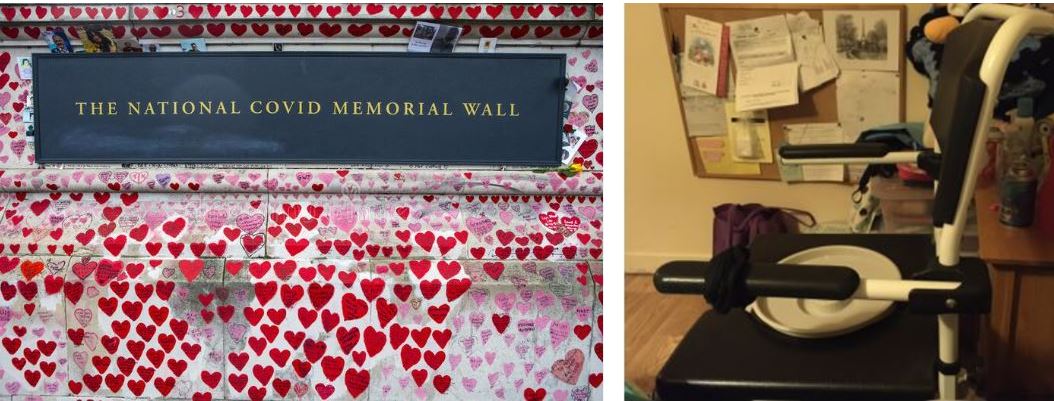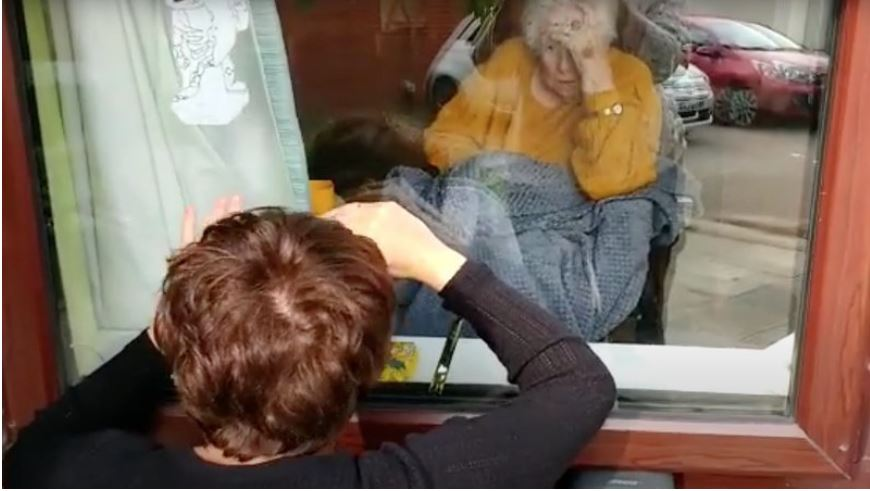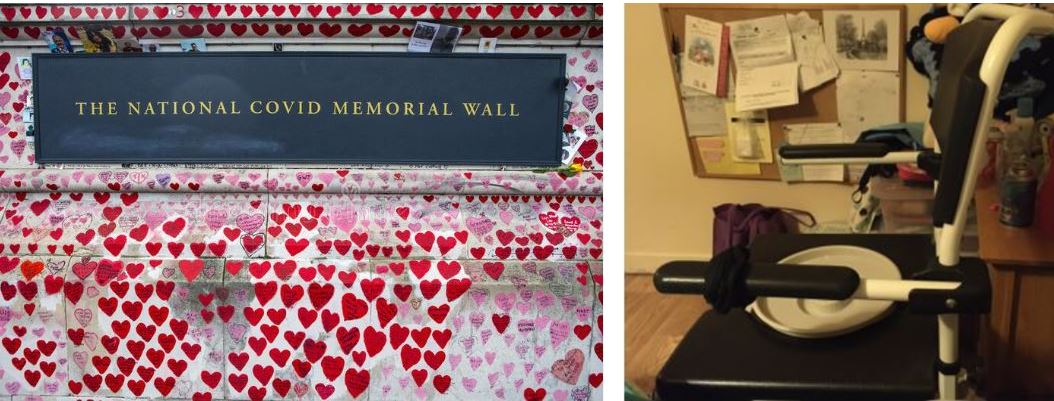
The independent COVID-19 Inquiry launches this week. All through the pandemic, we have been speaking out against deliberate policies by the government, medical authorities and Councils amounting to a cull of older and disabled people, disproportionately hitting women and people of colour. The benefits and support we need for our survival are still being denied to this day.
It’s no surprise that the government is trying to block disclosure of important information to the Inquiry. The Inquiry will be asking for and gathering evidence, before hearings are due to start next year.
Many of us have suffered bereavement or multiple bereavements from COVID and support the COVID-19 Bereaved Families for Justice.
We donated to help fund Cathy Gardner’s legal challenge on the death of her father: Help me hold the government to account for Covid-19 care home deaths.
In April 2022, the court ruled that Matt Hancock, Secretary of State for Health, acted unlawfully by discharging untested patients from hospital into care homes, when he had been warned that COVID can be passed on by people without symptoms. Watch Cathy Gardner’s speech here.
From March 2020 onwards, we raised concerns with our local Council about how the lockdown and emergency measures were hitting us. We wrote to the local press about their dismissive reply. We publicised the legal challenges by disabled people. We put in testimony to the MPs on cross-party Committees, on food access, denial of medical treatment and ventilator filters to women using breathing support, lack of social care, and the impact of disability discrimination and other discrimination. It seemed they were the only ones in Parliament criticising the government’s actions. There was little resistance to the deadly impact of the emergency measures in the House of Commons. Widespread use of the NHS COVID-19 “decision support tool” to justify refusal of medical treatment seemed to be accepted in an “emergency”.
We joined with the Inclusion London campaign against the Coronavirus Act deprioritising social care. The deprioritising of care visits and lack of protection of care staff resulted in double or triple the usual death rate of people on the homecare register – worse in deprived areas — mostly NOT COVID. As well as care workers and other key workers who still had to go to work, tragically dying disproportionately.

Rights for Residents call for the right to family life of care home residents, and for family and friends to have key worker status. They cite a study by scientists at Oxford University in 2021 that found that almost 40 per cent of excess fatalities were not caused by the virus – with many people dying of loneliness and neglect. Without the support of visitors, vulnerable residents were left to deteriorate and die: “neglect, thirst and hunger were – and possibly still are – the biggest killers”.
Recently, Disability Rights UK invited WinVisible, Disability North (Tyneside), Disability Peterborough, Disability Positive (in Cheshire) and Inclusion London to work with them on the Terms of Reference of the COVID-19 Inquiry, to help get disabled people recognised as a specific group hit by COVID and the COVID measures.
Among other issues, WinVisible pressed for the COVID response policies which affected us to be described as deliberate policy, neglect of people needing homecare to be included, and for recognition of the disproportionate impact on disabled people/women/of colour, including women with caring responsibilities for other people.
A legal letter by solicitor Shamik Dutta at Bhatt Murphy to the Chair of the Inquiry, representing the disability organisations, said:
EXTRACTS
“The context for our submissions is that throughout the pandemic, the Disabled people our clients have supported, have experienced mistreatment, reckless indifference and gross negligence. They have been dehumanised and afforded inadequate health care, social care and financial support in full knowledge of the harm that would be caused. This is not simply a case of thoughtlessness, but of deliberate policy decisions where disadvantageous outcomes for Disabled people should have been foreseen, but were implemented nonetheless. The Inquiry must be capable of examining and exposing this through its Terms of Reference.
Disabled people have died in disproportionate numbers during the pandemic. The Inquiry will be aware of ONS data that confirms that up to November 2020, Disabled people made up 59.5% of all deaths involving COVID-19. Moreover, that between 24 January and 20 November 2020 in England, the risk of death involving COVID-19 was 3.1 times greater for more-disabled men and 1.9 times greater for less-disabled men, compared with non-disabled men. Amongst women, the risk of death was 3.5 times greater for more-disabled women and 2.0 times greater for less-disabled women, compared with non-disabled women. The risk of death involving COVID-19 was 3.7 times greater for both men and women with a learning disability, compared with people who did not have a learning disability; after using statistical models to adjust for a range of factors, a raised risk of 1.7 times remained unexplained for both sexes.
The extent to which deaths during the pandemic, including this disproportionality, could have been anticipated and avoided must be properly examined.
. . . detrimental changes to social care provision through Care Act easements introduced by the Coronavirus Act, have served to attack the wellbeing of disabled people at a time of enhanced need.
Our clients note specific reference to the examination of disparities in the impact of the pandemic with regard to Equality Act 2010 protected characteristics. In this regard they expect the Inquiry will also examine how protected characteristics such as race, ethnicity and disability have combined to produce even worse outcomes for Disabled people.”
We won some expansion of the Terms of Reference of the Inquiry.
The Inquiry Secretary replied:
“. . . The Prime Minister has also accepted the Chair’s recommendation that the Terms of Reference be reframed to put possible inequalities at the forefront so that the investigation into the unequal impacts of the pandemic runs through the whole Inquiry. This important reframing will ensure the Inquiry is inclusive in its approach.
Finally, there are changes relating to a number of key areas that we heard about during the consultation, including care in the home, enforcement of the rules, support for victims of domestic abuse, and first contact with the NHS, including 111 and 999 services.”
The 111 helpline has been criticised by bereaved relatives including Lobby Akinnola who has called out systemic racism. His father Femi, a support worker at Mencap, was forced to improvise his own protection at work, got COVID, was advised by 111 to take Paracetamol, and died at home.
We will be following the Inquiry and responses from the bereaved families.
Read the Disability Rights UK press release here.

